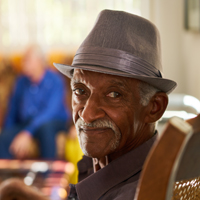Where Were Emergency AC Systems During the Hurricane?
October 13, 2017 After Hurricane Wilma hit Florida in 2005, state legislators took action to try to protect especially vulnerable populations in the case of another hurricane. One proposal would have required nursing homes to install generators able to power cooling systems, so that patients would be protected from exposure to dangerous temperatures. But when the bill reached the Senate, it was thrown out. When Hurricane Irma ravaged Florida recently, 10 elderly nursing home patients died – and all because the bill that was meant to protect them years ago wasn’t taken seriously enough and implemented in time.
After Hurricane Wilma hit Florida in 2005, state legislators took action to try to protect especially vulnerable populations in the case of another hurricane. One proposal would have required nursing homes to install generators able to power cooling systems, so that patients would be protected from exposure to dangerous temperatures. But when the bill reached the Senate, it was thrown out. When Hurricane Irma ravaged Florida recently, 10 elderly nursing home patients died – and all because the bill that was meant to protect them years ago wasn’t taken seriously enough and implemented in time.
When a hurricane occurs, it can be extremely difficult for emergency and police personnel to evacuate individuals in a timely manner, especially if they are elderly or have medical issues. And that is one of the main reasons why it is so important that nursing homes come equipped with generators capable of powering air conditioning (AC) systems in case the power goes out; emergency services may be unavailable for some time and it is crucial that senior citizens do not become dehydrated or overheat.
Unsurprisingly, many nursing homes may have been unhappy about the prospect of installing generators because of the financial expenses. But the proposed bill even set aside $57 million to partially reimburse (up to 50% of the total cost) nursing homes after they installed their full service generators. Not wanting to pay for an upgraded system is no excuse for actively putting people’s lives at risk – and now it is up to Florida lawmakers, as well as lawmakers across the country, to ensure that elderly populations will be adequately protected in the future.
There are different types of generators. In the case of the Rehabilitation Center of Hollywood Hills (RCHH), where the 10 individuals lost their lives, the machines were only able to sustain “life-saving equipment” – not emergency AC systems. State health care administrative mandated that RCHH – along with other nursing homes throughout the state – have generators capable of powering life-saving equipment, but air conditioning systems, just like breathing machines, fire alarms and nursing call buttons, can also save lives.
Heat stroke, heat stress and dehydration are serious medical issues for people of all ages, but the Centers for Disease Control and Prevention (CDC) report that people age 65 and older are especially at risk for heat-related illness, injury and/or death. Individuals in this age group are more likely to have health problems that alter the way their body responds to extreme temperatures or take medications that can have similar results.
One of the CDC’s main prevention tips for senior citizens to avoid heat stroke and heat stress is to remain in air-conditioned areas or buildings as much as they are able to. For residents at RCHH during Hurricane Irma, this wasn’t even a possibility. Reports that the facility was grossly understaffed during the storm have also surfaced, indicating that elderly nursing home residents were left on their own in these extremely hazardous conditions.
There are different types of medical problems that can be contributed to sustained and severe heat exposure. Heat exhaustion, which typically precipitates cases of heat stroke, is often accompanied by cold, pale or clammy skin, fainting, headache, dizziness, fast or weak pulse, muscle cramps, fatigue, heavy sweating and nausea or vomiting. When someone has heat stroke, medical attention is necessary immediately. It can cause body temperatures over 103°, confusion, hot, red, dry or damp skin, loss of consciousness and other serious symptoms. The CDC recommends that senior citizens receive immediate medical attention in cases of heat exhaustion or heat stroke.
The representative who sponsored the 2005 failed bill, Daniel Gelber, has said that it can be difficult to get the attention of lawmakers and enact change without a senseless tragedy occurring. Now that a total of 10 elderly patients have died as a result of negligence, Gelber hopes that legislators will work quickly to prevent catastrophes like this from ever occurring again – and perhaps that nursing home regulators will also decide that protecting the lives of senior citizens is a cause worthy of their attention.
These deaths were the result of preventable – and foreseeable – hazards. State and federal research initiatives have consistently acknowledged the importance of protecting individuals over 65-years-old from extreme heat conditions and note the importance of having air conditioning systems available. Safety failures like these result in lethal consequences and so it is crucial that protective legislation be enacted immediately. Due to the negligence of RCHH, state officials have shut the provider down and police are conducting a criminal investigation into the facility.
Philadelphia Nursing Home Abuse Lawyers at Galfand Berger, LLP Pursue Recoveries for Victims of Negligent Nursing Homes
If you or a loved one has experienced injuries as a result of substandard or negligent nursing home care, please contact our Philadelphia nursing home abuse lawyers at Galfand Berger. With offices located in Philadelphia, Bethlehem, Reading and Lancaster, we serve clients throughout Pennsylvania and New Jersey. To schedule a consultation, call us at 800-222-8792 or complete our online contact form.
 Google Screened
Google Screened
